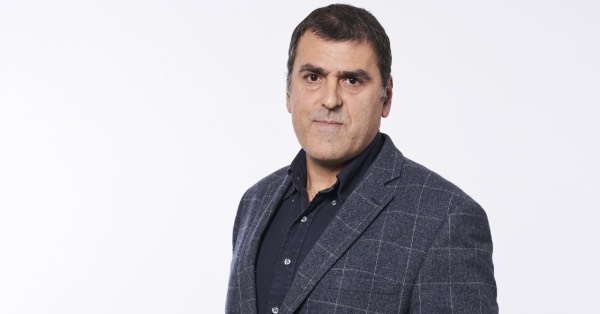- Safetytech Accelerator launches collaborative technology acceleration initiative with Evergreen Line, HMM, Lloyd’s Register, Maersk, the Offen Group, ONE and Seaspan as Anchor Partners aiming at reducing cargo fires and losses overboard
- A significant proportion of the world’s container cargo involved in new open-innovation initiative
Some of the world’s biggest maritime cargo carriers are joining forces with the world’s first industrial safety technology accelerator to launch a new innovation initiative to reduce cargo loss at sea.
Evergreen Line, HMM, Maersk, the Offen Group, ONE , Seaspan as well as Lloyd’s Register are joining forces with Safetytech Accelerator to find and advance technology innovations from across maritime and other industrial sectors to reduce the incidence and impact of cargo fires or cargo loss overboard.
The scale and breadth of the challenges facing operators is growing and continues to evolve. These include, through the increasing carriage of lithium-ion batteries either in containers or within electric vehicles on car-carriers and the increasing growth in complexity and size of modern container vessels. Fire and cargo loss at sea not only has an immediate impact on the safety of those onboard but also creates the potential for significant environmental damage.
The Safetytech Accelerator Cargo Fire & Loss Innovation Initiative (CFLII) is a collaborative technology acceleration program that will help tackle the issue through shaping joint requirements, identifying technology solutions, undertaking carefully designed trials and developing best practices and recommendations.
The Initiative has a broad scope encompassing three significant topics of concern. The first relates to onboard cargo control, including whether cargo has been properly, loaded, secured and monitored during transit. The second area covers the ability to detect fire onboard and stop its spread through effective onboard response, particularly on large container ships and car-carriers. The third relates to the challenges created by the increasing scale of vessels.
Global Containerships Segment Director at Lloyd’s Register (LR), and Chair of the Maritime Cargo Fire and Loss Initiative, Nick Gross said “We’re excited to start this initiative, working alongside the Anchor Partners to trial and adopt innovative technology for the prevention of cargo fires onboard, thus helping to make container shipping a safer operation. From LR side, the objective of the initiative resonates with our mandate to improve the safety of ships and crew, as well as protect the marine ecosystem. We believe it is vital to work together to tackle the increasing risk of cargo fires onboard container ships.”
The President of Evergreen Line, Eric Hsieh, said: “We are committed to talent training to help provide a safe, high quality working environment for our seaman. By participating in an enterprise such as the Cargo Fire & Loss Innovation Initiative we aim to work closely with all stakeholders to guard the safety of container shipping transportation.”
The Chief Maritime Officer of HMM, Kim Gyou-bong, said: “I am pleased to join this collaborative initiative with major industrial partners, expecting to develop advanced technology for significantly reducing the risk of safety-related accidents. HMM will give top priority to providing more reliable and differentiated shipping services by securing the safety of our ships and transported cargo.”
The Head of Marine Standards & DPA of Maersk, Aslak Ross, said: “The safety of our people is always of highest importance. Reducing the risk of cargo fires is accordingly a key priority for Maersk and the industry at large. The main root cause for cargo fires on container ships is the integrity of dangerous goods throughout the supply chain. Therefore it is a problem that can only be improved through industry wide solutions and for that reason we are a strong believer in sharing of learnings across the industry to improve safety. The Safetytech Accelerator Cargo Fire & Loss Innovation Initiative is a good platform to bring stakeholders together to find new effective solutions to the problem of cargo fires.”
The Managing Director of ONE, Hiroki Tsujii, said: “Given the rapid changes in both the shipping industry as well as the nature of cargo shipped, though ONE’s record of cargo fires are minimal, we are careful to not be complacent and continuously seek ways to improve our capabilities. Hence, we see the value of efforts such as this Cargo Fire & Loss Innovation Initiative (CFLII) which enables collaboration across industry stakeholders and provides the opportunity to share, learn and improve.”
The Director, Marine Standards and Designated Person Ashore at Seaspan, Alfred Gomez said, “Safety is at the very core of our culture at Seaspan. We are pleased to partner with our fellow industry leaders on an innovative initiative aimed at continuous improvement and solving for existing and emerging challenges within our dynamic industry.”
The Managing Director of Safetytech Accelerator, Maurizio Pilu, said; “Safeytech Accelerator’s mission is to help solve some of the most complex safety, risk and resilience challenges in industry through open innovation and collaboration. Eliminating cargo fire and loss is a big challenge in the maritime industry and while accidents are thankfully infrequent, their impact can be extremely large. Together with the Anchor Partners we hope this new collaborative technology acceleration initiative will help industry make significant progress towards that goal.”
Shipping companies who would like to know more about the Initiative, and technology companies with experience or interest in addressing the topics of concern indicated above, are invited to contact Safetytech Accelerator for further information.
https://safetytechaccelerator.org/work-with-us/cargo-fire-and-loss-innovation-initiative/









































